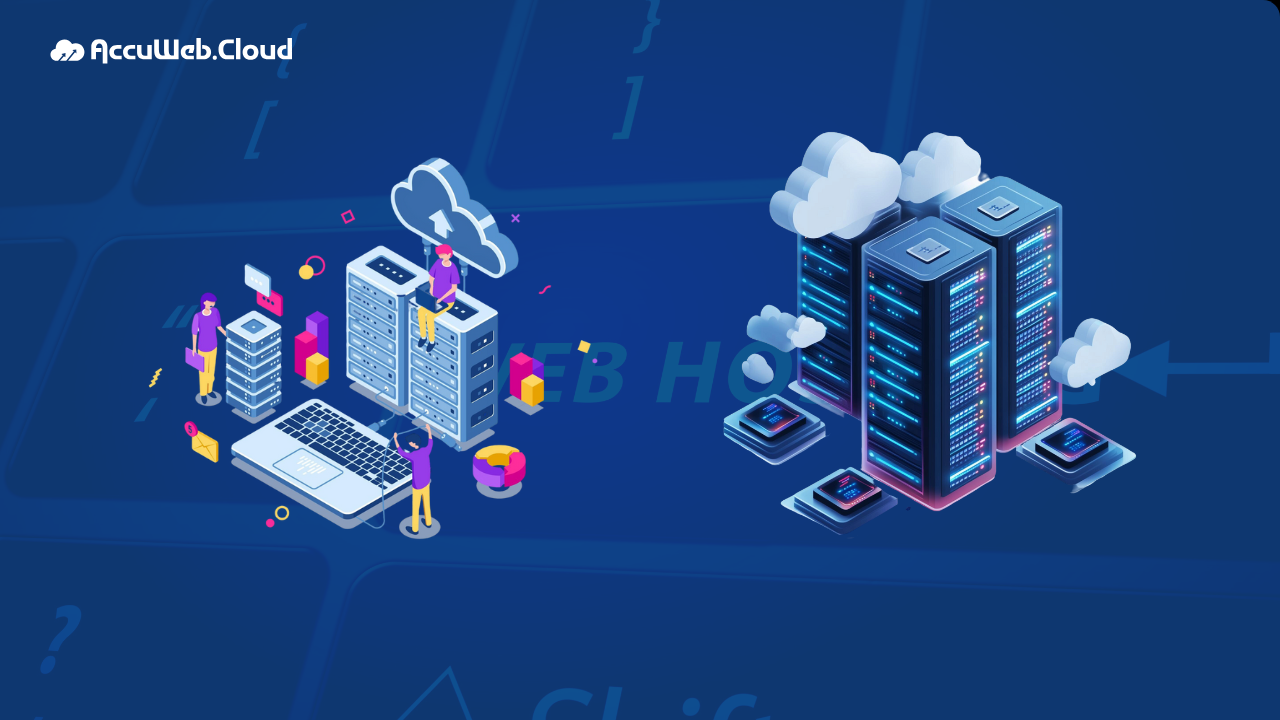When Should You Upgrade from Shared Hosting to Cloud VPS?
Introduction
Every website journey often begins with shared hosting – it’s affordable, easy to set up, and works well for beginners. But as your business, traffic, or applications grow, shared hosting starts showing its limits. Slow load times, security risks, and lack of flexibility can quickly hold you back.
That’s when Cloud VPS (Virtual Private Server) hosting becomes the next logical step. It gives you dedicated resources, better scalability, stronger security, and complete control over your hosting environment.
In this guide, we’ll walk you through the signs that it’s time to upgrade from shared hosting to Cloud VPS and explain how Cloud VPS can support your growing needs.
Your Website’s Traffic is Exceeding the Limits of Shared Hosting!
Shared hosting is ideal for low to medium-traffic websites. It hosts multiple websites on a single server, therefore the resources—CPU, RAM, bandwidth—are distributed among all the users.
If one site experiences sudden growth in terms of traffic, it can lead to consuming more shared resources and other sites may end up experiencing slowdowns or downtime.
However, as your website grows and gradually attracts more traffic, shared hosting is no longer sufficient.
Let’s break this down technically:
Traffic Impact on Shared Hosting:
- CPU & RAM are Limited: When various websites are drawing from the same common pool of server resources, it is like a multitude trying to use the same computer at one time.
If your site demands too much CPU power or memory, the server may have a tough time keeping up and possibly slow down your site’s performance. - Bandwidth Caps: Shared hosting inherently tends to include bandwidth limitations. What this means is that the amount of data your site will send and receive is capped.
When you hit that limit, visitors will experience long stretches of downtime or even fail to access your site.
What Happens to Cloud VPS When It Becomes Busy?
- Dedicated Resources: With Cloud VPS, resources (CPU, RAM, Disk Space) are allocated to your website or application. This means you don’t have to worry about other sites using up resources when there’s high traffic.
In contrast, with shared hosting, these resources are shared among many websites. If another site on the same server gets busy, it can slow down your website. But with Cloud VPS, your dedicated resources ensure your site stays fast and responsive, no matter what. - Auto-Scaling: With its auto-scaling capabilities, the Cloud VPS can adjust resources dynamically and accommodate the traffic spikes, making sure there’s no slowdown or downtime during peak periods.
Indicators that You’re on Shared Hosting:
- Your website takes a lot of time to load during peak hours of traffic.
- You receive persistently recurring warnings from your hosting provider concerning the overuse of resources.
- Visitors claim that they cannot access your site frequently especially when there are sales or promotion events.
You Need More Control Over Server Configurations
Shared hosting is well-known for being easy to use, making it ideal for beginners. However, there are significant restrictions on server control due to this simplicity. Critical configurations in shared hosting setups are frequently locked down to prevent misuse or unintentional misconfigurations by unskilled users.
However, when your application or website expands, you could require greater freedom. You can’t get the access or control you require from shared hosting to install custom applications, enhance performance, or strengthen security.
How Limited Control Affects Developers and Advanced Users?
- No Root Access: Root access (admin privileges) is crucial for making deep system-level changes, such as installing specific versions of software, customizing server settings, or even optimizing database queries for speed. Shared hosting typically does not allow root access to users.
- Pre-Configured Environments: With shared hosting, you’re often stuck with a preset server configuration (e.g., certain versions of PHP, MySQL, or Apache) and can’t change settings like the PHP memory limit or execution time, which could slow down your applications.
How Cloud VPS Solves This Problem?
- Full Root Access: With Cloud VPS, you get root or superuser access, which allows complete control over the server. This is especially useful for developers who need to configure their environments exactly to their needs.
- Custom Software Installations: Want to run Node.js for a back-end application or MongoDB for a NoSQL database? Need a particular version of PHP or MySQL? Cloud VPS allows you to install and run any software you want without restriction.
Indicators That It’s Time to Upgrade for Enhanced Control:
- You need to install or configure custom software that shared hosting doesn’t support.
- Your website or application requires advanced optimizations (e.g., for caching, and database management) that are beyond what shared hosting allows.
- You’re experiencing performance issues but can’t access the necessary configurations to tweak them.
Are you hitting resource limits?
One of the most common reasons businesses and developers move to Cloud VPS is resource exhaustion. Shared hosting plans come with fixed limits on CPU, RAM, and storage, and once you reach these limits, your site’s performance will suffer.
How Resource Limits in Shared Hosting Work?
- CPU Throttling: If your website consumes too much CPU power, the server will throttle your resources to prevent your site from monopolizing the server. This results in slow page loads or timeouts for users trying to access your site.
- Memory Restrictions: Shared hosting plans often come with strict RAM limits, and if your site exceeds those limits (for instance, by running too many processes at once), your hosting provider may suspend your account temporarily or display errors like “503 Service Unavailable.”
- Disk I/O Limits: Even though shared hosting might offer “unlimited” storage, it’s often subject to disk I/O limitations. This means that the speed at which your site can read or write data to the server’s storage is limited, which can severely impact performance for larger sites.
How Cloud VPS Handles Resource Needs?
- Scalable CPU and RAM: In Cloud VPS environments, you can add more resources as your site grows. For example, if your e-commerce site gets more traffic than expected during a holiday sale, you can increase the server’s CPU and memory allocation without downtime.
- Guaranteed Disk I/O: Cloud VPS typically uses SSDs (Solid State Drives) for faster data access. Moreover, the disk I/O is guaranteed based on the plan you choose, which eliminates bottlenecks and ensures faster read/write times. Many Providers will provide free cloud storage for your account, you can explore
Indicators That You’re Reaching Resource Limits:
- Your site frequently displays “503 Service Unavailable” errors, especially during high-traffic periods.
- Your hosting provider has warned you about resource overuse or excessive processes running on your account.
Explore Pay-as-you-go cloud storage solutions for small to extensive enterprises!
Do you need better security and privacy controls?
Security is another critical reason to switch to Cloud VPS. Shared hosting environments are inherently less secure because multiple websites share the same server and its resources.
If one website on the server is compromised, there’s a risk that all websites on that server could be affected. In contrast, Cloud VPS provides a more secure, isolated environment where you have full control over your security configurations.
Security Risks in Shared Hosting:
- Shared IP Address: Most shared hosting plans use the same IP address for all websites on the server. If one website engages in spammy or malicious behavior, it could result in the entire server being blacklisted, affecting your site’s email delivery or SEO rankings.
- Cross-Site Contamination: Since multiple sites share the same server space, malware, or malicious scripts from one site can potentially spread to others. This is particularly risky if neighboring websites are not well-maintained or are vulnerable to attacks.
How Cloud VPS Strengthens Security?
- Isolated Environment: In Cloud VPS, your server is fully isolated from others, meaning that your data and resources are protected from cross-site contamination. Even if another VPS on the same physical server is compromised, your VPS remains secure.
- Custom Security Configurations: You can configure firewalls, install intrusion detection systems (IDS), and implement other advanced security protocols like two-factor authentication (2FA) or SSL certificates for encrypted communications.
Indicators That an Upgrade for Enhanced Security is Needed:
- You’re handling sensitive data (such as customer information, payment details, or proprietary business data) and need advanced security measures.
- You’ve experienced malware or security issues on your shared hosting account due to a compromised neighboring site.
- You need full control over security configurations (e.g., to meet industry compliance standards like GDPR or HIPAA).
Protect your server with Bitninja which brings together the most powerful server security in one platform!
Are you running resource-heavy applications?
Many sites start small as blogs or small business sites but often grow into much more resource-intensive applications.
Whether you’re running an e-commerce site, a content management system, or even a SaaS platform, resource-intensive applications can rapidly outgrow the limits of shared hosting.
How Resource-Heavy Applications Strain Shared Hosting?
- Database-Driven Sites: Examples include WordPress, Magento, or Joomla, where the content depends majorly on databases. As the visitor’s increase, so do the database queries, thus slowing down the server.
- Application-Specific Requirements: Some applications need special server environments or software stacks (e.g., Node.js, Redis, ElasticSearch) that shared hosting does not support.
How Cloud VPS Optimizes Application Performance?
- Dedicated Databases: With Cloud VPS, you can optimize your databases by allocating more RAM for caching or increasing disk speed through SSD storage. This results in faster query responses and improved application performance.
- Custom Software Stack: You have full control over your server environment, allowing you to run the specific stack required by your application without any restrictions imposed by the hosting provider.
Indicators That You’re Experiencing Performance Issues with Applications:
- Your database-driven site (like an online store) is taking too long to load or frequently crashes.
- Your hosting provider doesn’t support the software or versions needed to run your application efficiently.
- You need better caching options (e.g., Redis, Memcached) that shared hosting can’t provide.
Solution?? Look out for all solutions with the necessary features and go beyond the boundaries!
Conclusion:
If you’re noticing performance slowdowns, hitting resource limits, or feeling restricted by shared hosting’s lack of control, it’s likely time to upgrade to Cloud VPS. Cloud VPS offers scalable resources, improved performance, better security, and the flexibility to configure your server exactly as needed.
Whether you’re a business experiencing growth, a developer needing more control, or a startup looking for better performance, upgrading to Cloud VPS will provide the technical foundation to support your evolving needs.
With AccuWeb.Cloud’s Cloud VPS solutions, you can scale your hosting environment as your business or application grows, ensuring you have the power and resources needed for success.
People Also Ask (And You Should Too!)
1. What is the main difference between shared hosting and Cloud VPS?
Shared hosting means multiple websites share the same server resources, making it affordable but limited in performance. Cloud VPS, on the other hand, provides dedicated virtual resources with better speed, security, and scalability for growing websites.
2. When should I upgrade from shared hosting to Cloud VPS?
You should consider upgrading when:
- Your website experiences slow loading times.
- Traffic spikes affect performance.
- You need advanced customization or control.
- Security and data protection become a priority.
- Your business is scaling and requires reliable uptime.
3. Is Cloud VPS hosting more secure than shared hosting?
Yes. With Cloud VPS, your environment is isolated, meaning your website’s performance and security aren’t affected by other users on the same server. This makes it more secure than shared hosting.
4. Can Cloud VPS handle sudden traffic spikes better than shared hosting?
Absolutely. Cloud VPS allows you to scale resources on demand, making it ideal for handling sudden traffic surges without downtime — something shared hosting struggles with.
5. Do I need technical knowledge to manage a Cloud VPS?
Not necessarily. Many providers, like AccuWeb.Cloud, offer managed Cloud VPS solutions with user-friendly dashboards. This means you can enjoy VPS power without being highly technical.
6. Will upgrading to Cloud VPS improve my website’s SEO?
Yes, indirectly. Faster loading speeds, higher uptime, and improved security are all ranking signals for Google. A Cloud VPS can help enhance SEO by improving user experience and website performance.

Jilesh Patadiya, the visionary Founder and Chief Technology Officer (CTO) behind AccuWeb.Cloud. Founder & CTO at AccuWebHosting.com. He shares his web hosting insights on the AccuWeb.Cloud blog. He mostly writes on the latest web hosting trends, WordPress, storage technologies, and Windows and Linux hosting platforms.









